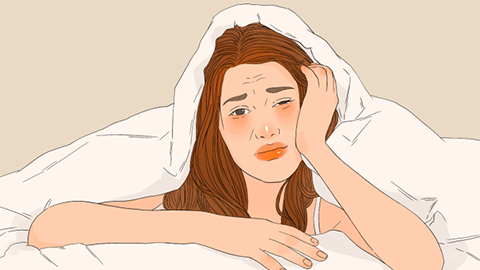How to Restore Physical Function After Sleep Interruption
Generally, after sleep is interrupted, physical functions can be restored through methods such as catching up on sleep, improving the sleep environment, moderate exercise, dietary adjustments, and psychological adaptation. Detailed explanations are as follows:

1. Catching Up on Sleep
Sleep interruption may prevent the cerebral cortex from achieving sufficient deep sleep stages, which are crucial periods for tissue repair and enhanced immunity. Catching up on sleep can partially compensate for lost slow-wave sleep, promote secretion of growth hormone, and accelerate muscle repair and cell regeneration.
2. Improving the Sleep Environment
Use tools such as blackout curtains, earplugs, or white noise machines to reduce light and noise disturbances in the bedroom, thereby improving sleep continuity. It is also recommended to go to bed and wake up at the same time daily, including on weekends, which helps regulate the biological clock and improve sleep quality.
3. Moderate Exercise
Sleep interruption may lead to a decreased metabolic rate. Light exercise can elevate heart rate, improve blood circulation, and increase oxygen delivery to organs. Additionally, exercise stimulates endorphin release, alleviates fatigue, and improves the body's stress status by balancing the sympathetic and parasympathetic nervous systems.
4. Dietary Adjustments
Consuming foods rich in protein, complex carbohydrates, and magnesium, such as eggs, oats, bananas, and a small amount of nuts, helps physical recovery. Avoid consuming stimulants like caffeine and alcohol before bedtime, as they may disrupt sleep.
5. Psychological Adjustment
Practicing relaxation techniques, such as meditation, deep breathing, or engaging in enjoyable activities, can help reduce stress and anxiety, promoting physical and mental balance and recovery. A positive mindset and emotional state are essential for improving sleep quality.
After interrupted sleep, taking short naps during spare time can help relieve fatigue and restore energy. However, prolonged napping should be avoided to prevent disruption of the normal biological clock and sleep quality.





